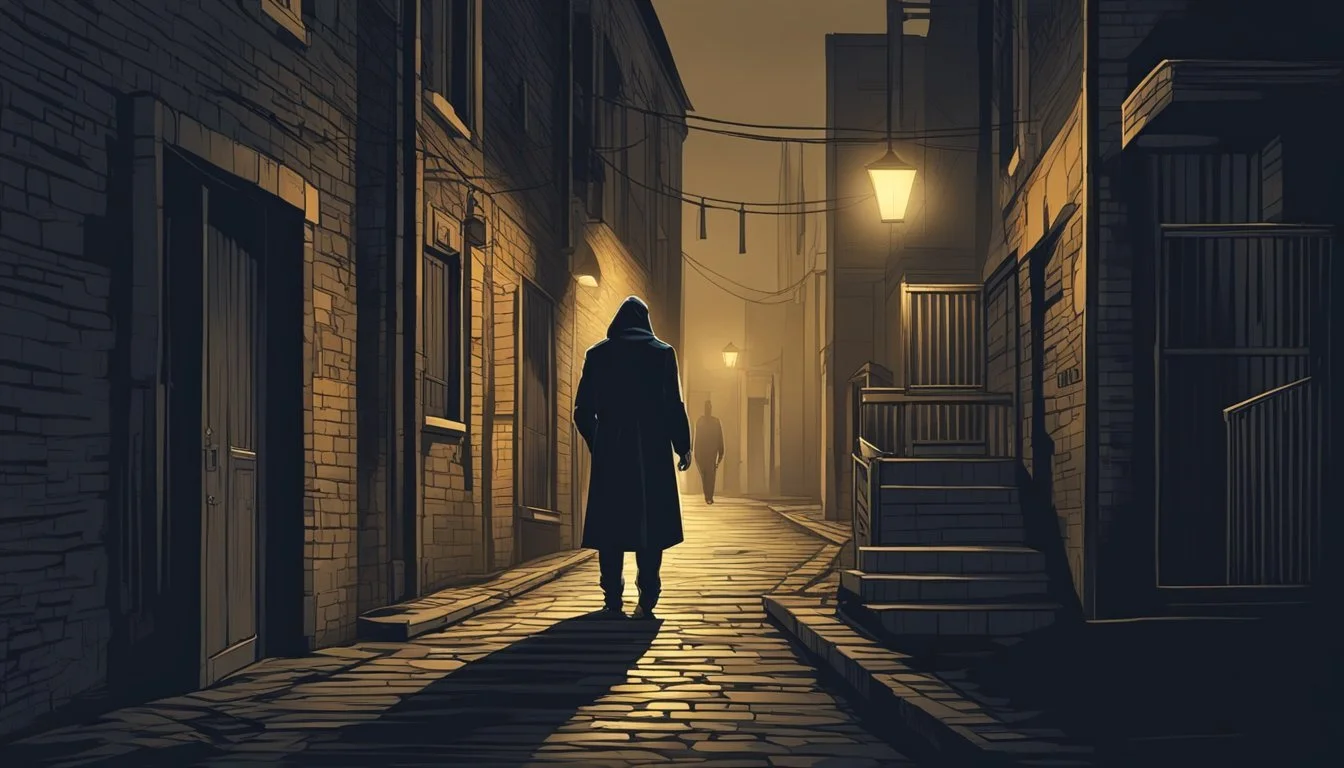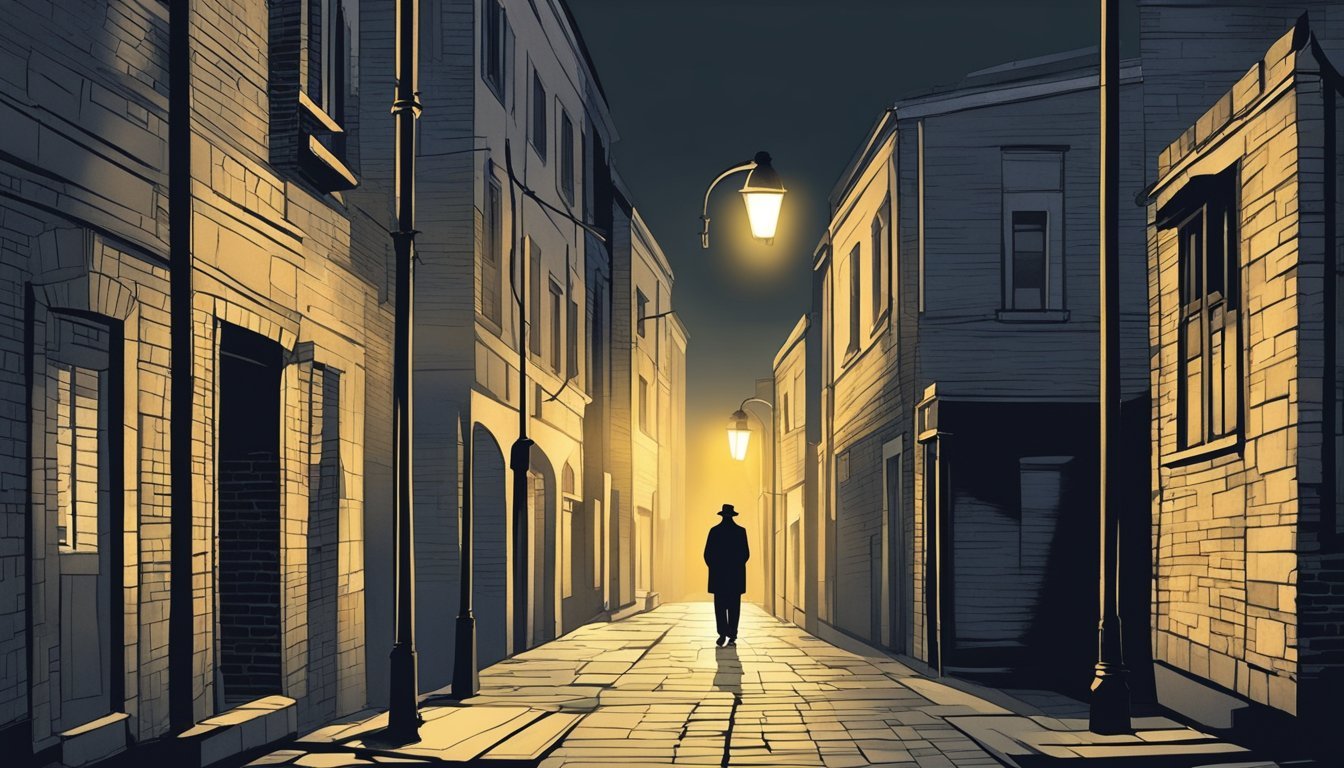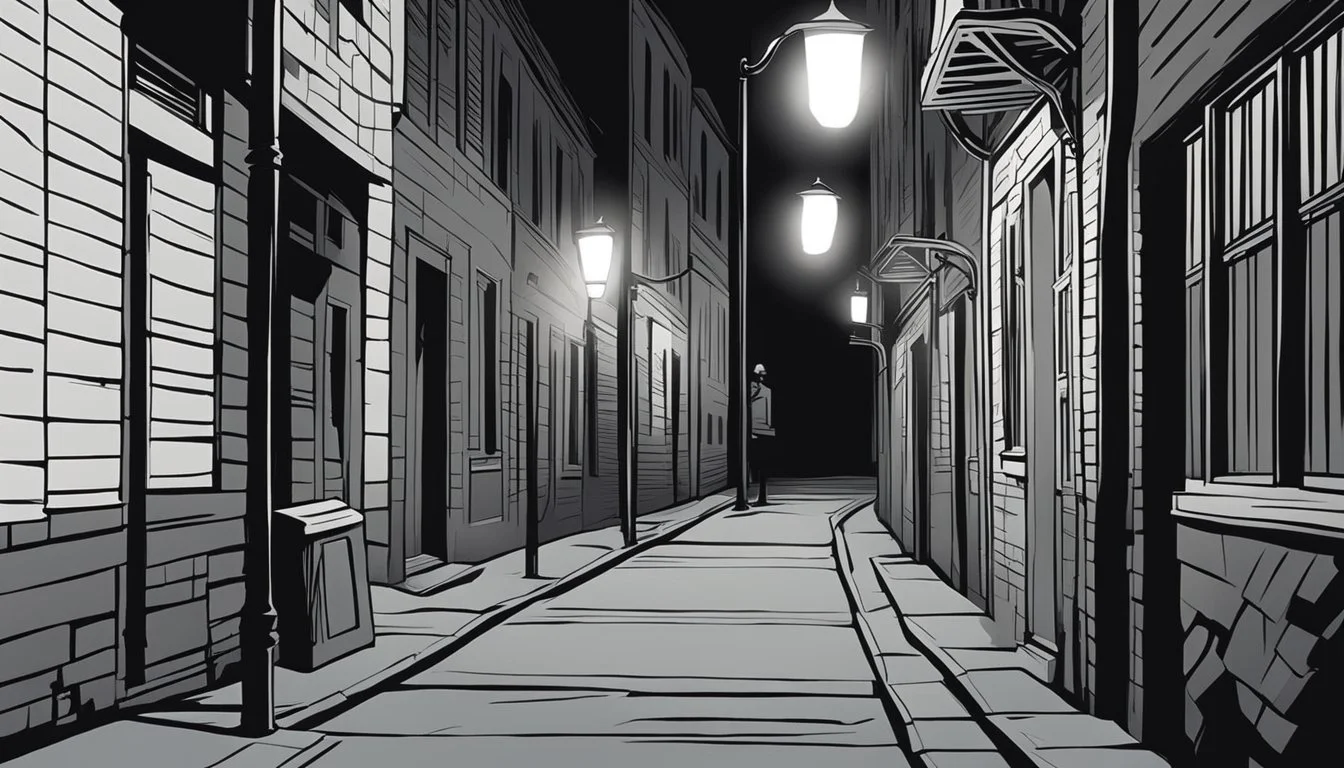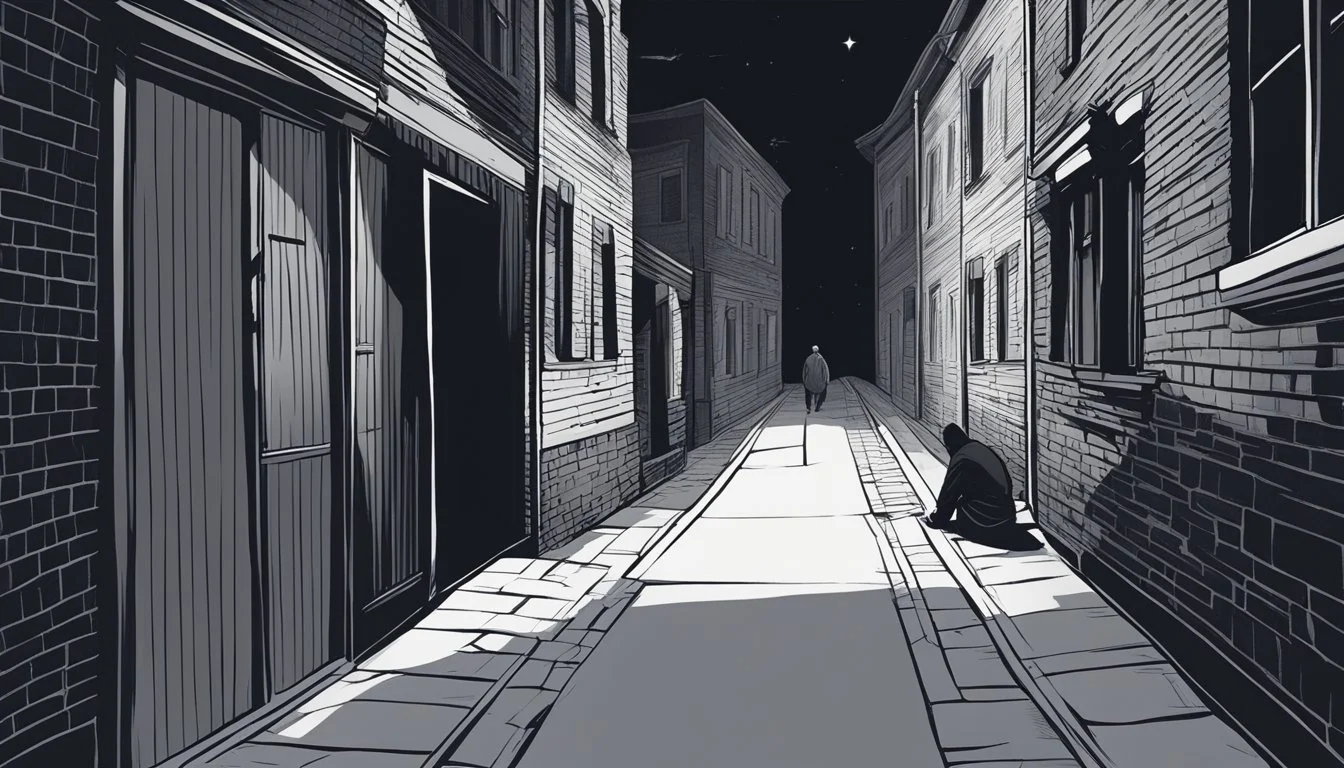William Choyce: 4 Chilling Documentaries on the California Serial Rapist and Killer
Exploring the Dark Case Through Film
William Choyce, a convicted serial rapist and killer from California, has been the subject of several chilling documentaries. These films explore the dark crimes committed by Choyce and their impact on his victims, family members, and the wider community.
The documentaries about William Choyce offer viewers a glimpse into the mind of a serial offender and the devastating consequences of his actions. Through interviews, archival footage, and expert analysis, these films shed light on Choyce's background, his criminal activities, and the investigation that ultimately led to his capture and conviction.
1) Night Stalker: The Hunt for a Serial Killer
This four-part true crime documentary series focuses on the hunt for Richard Ramirez, one of America's most notorious serial killers. Released on Netflix in 2021, it chronicles the investigation that led to Ramirez's capture.
The series features interviews with key figures involved in the case, including detectives Gil Carrillo and Frank Salerno. It provides a detailed look at the terror Ramirez inflicted on Los Angeles and San Francisco in the mid-1980s.
Night Stalker explores Ramirez's disturbing crimes and the impact they had on his victims and the community. The documentary also delves into the killer's background and the factors that may have contributed to his violent behavior.
The series received mixed reviews from critics. Some praised its comprehensive approach to the case, while others felt it focused too heavily on the gruesome details of Ramirez's crimes.
Night Stalker: The Hunt for a Serial Killer offers viewers a chilling look into one of California's most infamous criminal cases. It serves as a stark reminder of the impact of violent crime on communities and the dedication of law enforcement in bringing perpetrators to justice.
https://www.imdb.com/title/tt13183288/
2) I Am a Killer: Released
"I Am a Killer: Released" is a three-part documentary series that follows the story of Dale Wayne Sigler. The series examines Sigler's life after his release from prison, where he served 30 years for murder.
The documentary provides a unique perspective on the criminal justice system and the challenges faced by individuals reintegrating into society after long-term incarceration. It explores Sigler's experiences as he adjusts to life outside prison walls.
Viewers gain insight into Sigler's thoughts and emotions as he navigates his newfound freedom. The series also delves into the impact of his release on those around him, including family members and the community.
"I Am a Killer: Released" raises thought-provoking questions about rehabilitation, redemption, and the long-term consequences of violent crime. It offers a nuanced look at the complexities of the criminal justice system and its effects on individuals and society.
The documentary series is available on Netflix, providing viewers with an in-depth exploration of life after imprisonment for a convicted killer.
https://www.imdb.com/title/tt12851524/
3) The Golden State Killer: It's Not Over
"The Golden State Killer: It's Not Over" is a 2018 TV series that explores one of California's most notorious serial predators. The show delves into the crimes of a man who terrorized Northern and Southern California for over a decade.
From 1976 to 1986, this unidentified criminal committed more than 50 rapes and 10 murders. The series features interviews with survivors, victims' families, and detectives who worked tirelessly on the case.
Paul Holes, a key investigator, provides insights into the hunt for the elusive killer. The show also examines the lasting impact of these crimes on the survivors and the communities affected.
"The Golden State Killer: It's Not Over" offers a detailed look at the investigation techniques used to track down the perpetrator. It highlights the persistence of law enforcement and the importance of advances in DNA technology in solving cold cases.
The series presents a comprehensive overview of the case, combining archival footage with new interviews to create a compelling narrative. It serves as both a true crime documentary and a tribute to the victims and their families.
https://www.imdb.com/title/tt7909196/
4) Manifesto of a Serial Killer
"Manifesto of a Serial Killer" is a documentary that delves into one of California's most notorious serial killer cases. The film explores the disappearance of Paul Cosner in 1984, which sparked a chilling investigation.
The documentary follows a filmmaker's journey as they uncover the terrifying story behind Cosner's disappearance. It reveals how one woman's determination to find her missing brother led to a shocking discovery.
This true crime special aired on Oxygen True Crime in January 2023. It was presented in three parts, with each segment focusing on different aspects of the case.
The documentary provides insight into the investigation process and the impact on the victims' families. It combines interviews, archival footage, and expert analysis to present a comprehensive look at the case.
"Manifesto of a Serial Killer" offers viewers a gripping exploration of a dark chapter in California's criminal history. It sheds light on the complexities of investigating serial killer cases and the lasting effects on those involved.
https://www.imdb.com/title/tt27359908/
Background of William Choyce
William Jennings Choyce was born on December 19, 1953, in Alameda County, California. His criminal activities spanned several years before he was ultimately captured and convicted for his heinous crimes.
Early Life and History
Choyce grew up in Oakland, California. As a teenager, he met Alice Swafford when her family moved to his street. The two later married and had a daughter named Crystal.
From the early stages of their relationship, Choyce displayed a strong interest in strip clubs and sex workers. This behavior continued throughout their marriage, causing strain on their relationship.
Criminal Activities
Choyce targeted and victimized sex workers. His criminal activities included rape and murder, with his crimes primarily occurring in the late 1990s.
He committed at least three gruesome rapes and murders during this period. Choyce's pattern of targeting sex workers made it challenging for law enforcement to connect the crimes initially.
Capture and Conviction
Law enforcement eventually apprehended Choyce for his crimes. In 2008, at the age of 54, he faced trial for the rape and murder of three women.
A jury in Stockton, California, found Choyce guilty of these heinous acts. The court sentenced him to death for his crimes. The conviction brought a measure of justice to the victims' families and ended Choyce's reign of terror.
Psychological Profile
William Choyce displayed complex behavioral patterns and motivations that fascinated criminal psychologists. His actions revealed disturbing insights into the mindset of a serial offender.
Behavior Patterns
Choyce exhibited a fixation on sex workers and strip clubs from an early age. This obsession persisted throughout his marriage, indicating deep-seated issues with sexuality and relationships.
His crimes showed a consistent modus operandi. Choyce targeted vulnerable women, often sex workers, demonstrating predatory behavior and a lack of empathy.
The escalation from rape to murder suggests an increasing need for power and control. Experts believe this progression is common in serial offenders as they seek greater thrills.
Choyce's ability to maintain a seemingly normal family life while committing heinous acts points to compartmentalization. This trait allowed him to separate his criminal activities from his public persona.
Expert Analysis
Criminal psychologists have identified several key factors in Choyce's psychological makeup. They note his apparent antisocial personality disorder, characterized by a disregard for others' rights and lack of remorse.
Experts theorize that Choyce may have experienced trauma or abuse in his formative years, contributing to his deviant behavior. However, this remains speculative without concrete evidence.
Analyses suggest Choyce likely derived a sense of power from his crimes. The act of rape and murder may have fulfilled a psychological need for dominance and control.
Psychologists emphasize that Choyce's case highlights the complexity of criminal minds. His ability to blend into society while harboring violent urges underscores the challenges in identifying potential offenders.
Impact on the Community
William Choyce's crimes left deep scars on the victims, their families, and the broader community. His actions sparked fear and outrage, prompting increased awareness of safety issues and support for those affected.
Victims and Families
Choyce's victims were primarily sex workers in Oakland and Stockton, California. His brutal attacks traumatized survivors and devastated the families of those he murdered. Many victims' loved ones struggled with grief, anger, and a sense of injustice for years.
The impact rippled through generations. Children of victims grew up without mothers, facing emotional and financial hardships. Some family members became advocates, speaking out against violence and supporting other survivors.
Community Response
Choyce's crimes heightened fear in the affected neighborhoods, especially among vulnerable populations. Local authorities faced criticism for their handling of the cases, with some arguing the victims' backgrounds led to delayed investigations.
Community organizations rallied to support sex workers and raise awareness about safety. Vigils and memorials honored the victims, fostering solidarity among residents. Some groups pushed for policy changes to better protect at-risk individuals and improve law enforcement responses to similar crimes.
The case also sparked discussions about racial disparities in media coverage and public attention given to crimes against marginalized communities.






